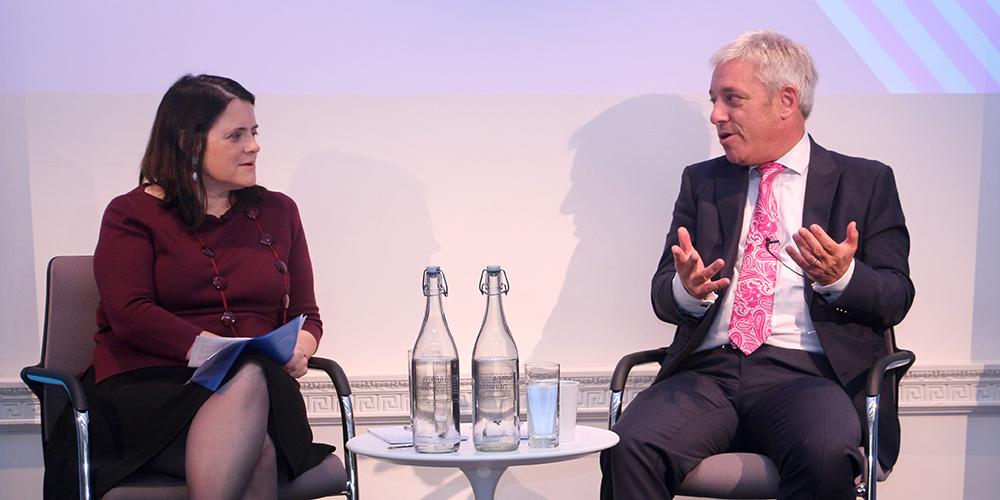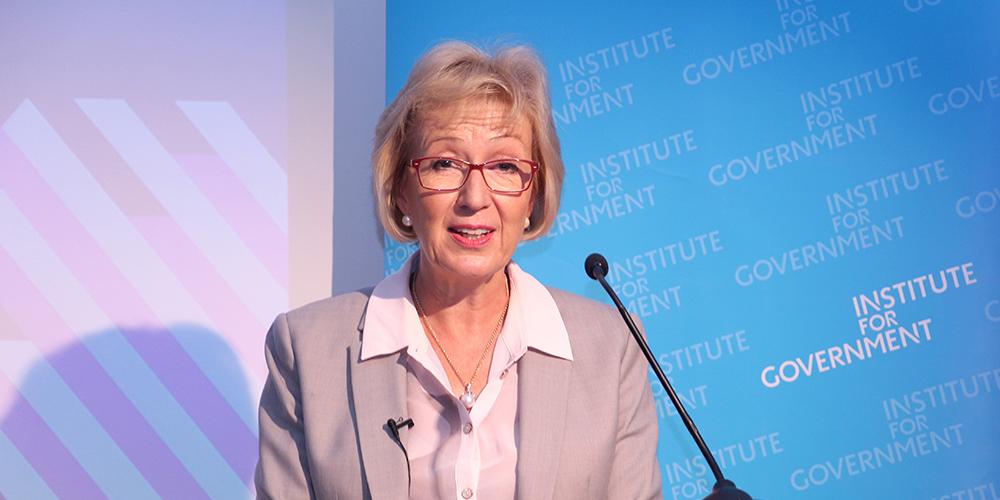How Brexit and minority government can strengthen Parliament's role and procedures
The Government continues to receive criticism for its manoeuvres to control debate and scrutiny in the House of Commons. Dr Catherine Haddon argues that such battles also show the opportunities parliamentarians have to assert themselves.
With the return of Parliament after the summer recess, it’s not taken long to get back into swing of things. Much of the early action has been, at first glance, quite worrying for Parliament’s ability to scrutinise the Government.
Whether it’s the second reading of the EU (Withdrawal) Bill and its swathe of secondary legislative powers; a motion to give the minority Conservative Government a majority on bill committees; or the Conservative whips’ decision to pull the Opposition Day rug out from under Labour, all have caused uproar and complaints that the Government is not respecting Parliament. However, all of them also contain the roots of a strong and influential Parliament.
More public awareness of procedural detail
Many of the complaints about the Government’s tactics are fair cop, not least how the Government has manoeuvred over key parliamentary processes. As the Speaker of the Commons John Bercow told the Institute for Government, parliamentary votes of all kinds matter. Speaking about the Government’s decision not to force an Opposition Day division, he said it would be a “very worrying” development for votes to be “treated lightly or disregarded” by the Government.
The very fact this move provoked such reaction is itself encouraging. Like the motion earlier in the week to get a Government a majority on the little-known (until recently) Committee of Selection, the Government was unable to act with total impunity.
Government will be conscious of the narrative it is creating for how it goes about Brexit. Hence Leader of the House Andrea Leadsom’s defence of these moves when she spoke at the IfG a few hours after Bercow. Leadsom argued that the Selection Committee move is not that big a deal (and she’s probably right in the wider scheme of things). Many bill committees will have even numbers, and when votes are tied the chair votes with the status quo.
These rows do remind us that process battles will be a theme throughout. Given how much of Brexit’s progress in Parliament relies on complex and thorny legislation (not least the mass of secondary legislation of which only a percentage will get full parliamentary scrutiny), procedural detail needs this level of public attention.

A greater role for backbenchers and smaller parties
One of the Speaker’s roles is to champion minority interests and the role of the backbencher. Bercow spoke in depth about what he sees as the strong role for Parliament in scrutinising Brexit, as well as his own role in maximising participation and allowing urgent questions (Bercow has allowed many more than his two predecessors).
He also talked about his role in choosing amendments. As we saw from the Queen’s Speech debate, canny and well-timed amendments to motions and bills can be highly successful and will be a boon both to those seeking to move the Government’s Brexit position and backbenchers or opposition parties seeking single-issue wins.
Bercow gave great insight into what goes into choosing amendments, looking at such things as the level and breadth of support and seniority of the signatories. But he also considers amendments that seem to have a great deal of import and therefore “facilitate the House in…. resolving the issue one way or another”.
Bercow said that he would not shy away from difficult decisions and that “nothing is too toxic for Parliament to consider”. Backbenchers and smaller parties will continue to get plenty of opportunities to get their issues heard or acted upon.

A parliament that reflects the nation
Leadsom claimed that this Parliament is all the better for no party having a majority because it reflects the national mood. We will see after conference season whether Parliament can live up to this aspiration.
A big test will be how the Government approaches the 136 amendments already down on the EU (Withdrawal) Bill. Leadsom hinted that the Department for Exiting the European Union is looking at the suggestions for improved scrutiny, including the possibility of some kind of triaging system for this mass of ‘so-called Henry VIII powers’. It is a tacit acknowledgement that the Government will need to offer some serious concessions to back up her claim that it wants to be “collegiate and cooperative”.
Whatever happens, these two weeks back in the office since recess have provided plenty of parliamentary drama. Despite cries of foul play, there are many signs of how parliamentarians can have an impact and make the institution work better – if they have got the street smart to take advantage of the situation.
Watch in conversation with John Bercow
Watch in conversation with Andrea Leadsom